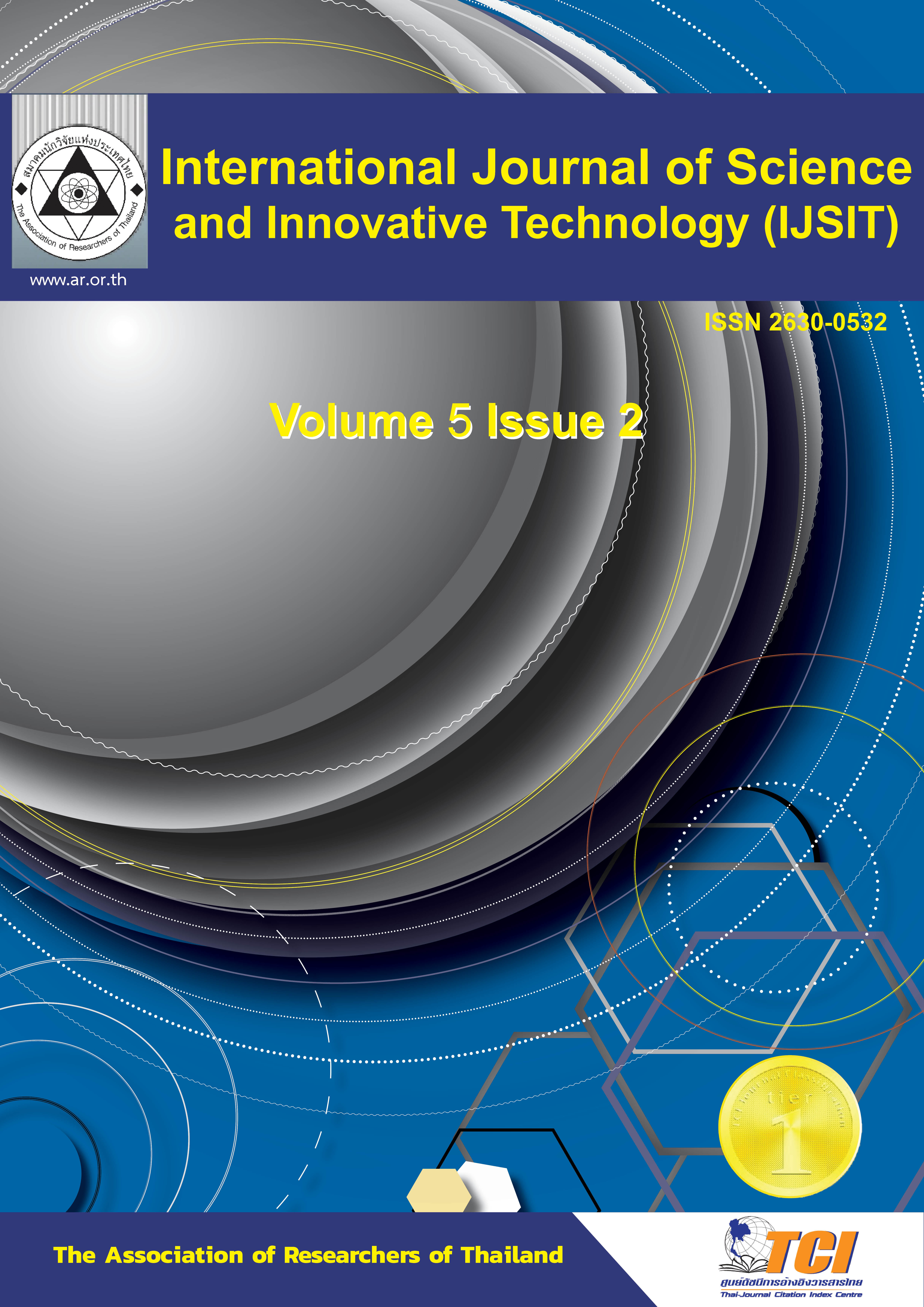Development of learning innovation of vocational skills and self-reliance for underprivileged youths using lifelong learning resources
Main Article Content
Abstract
This paper is a research and developments aiming to 1) analyze and synthesize learning innovation of vocational skills and self-reliance for underprivileged youth using 1)lifelong learning resources 2) develop learning innovations 3) investigate the results of using learning innovations and 4) synthesize and propose a learning innovation development model. The sample group used in the research of local wisdom in learning resources was 4 people, 100 non-formal teachers. The research tools consist of a community fundamental survey for learning resources in the community, an interview form, group discussion topics, and an assessment form for the use of learning innovation in vocational skills. The qualitative data were analyzed using the content analysis method. Research findings as models for learning innovation development, consisting of and conditions/Factors/Indicators for Sustainability.
Article Details

This work is licensed under a Creative Commons Attribution-NonCommercial-NoDerivatives 4.0 International License.
References
Kanchana Ngaorangsee. (2015). Training Manual for Researcher Development Program. Bangkok: Office of the National Research Council of Thailand and the Association of Researchers of Thailand.
Chansri Simsin, Phusit Boonthongtherng, Tasanee NakhunSong. (2016). Community Innovation for Lifelong Learning. Journal of Educational Administration, Year 12 No. 1 (2016): January-June 2016
Duenpenporn Chaipukdee. (2020). Development of an innovative curriculum for teaching and learning creative productivity based on local herbal learning resources. Journal of Curriculum and Instruction. Sakon Nakhon Rajabhat University, Year. 13, Issue 36, January-April 2021, pages 1-9
Mariam Ninlaphand and Siriwan Wanichwattana Worachai (2015). Learning innovation development at the basic education level with community participation using museums and local learning resources to promote creative learning. Thai edition, Humanities, Social Sciences and Arts, Year 8, Issue 1, January - April 2015
Pakaphon Salathong. (2019). The development model for self-reliance of farmers in Chachoengsao Province. Journal of the Association of Researchers, Year 24, Issue 3, September - December 2019, pages 74 – 90)
Wichan Panich. (2012). A way of building learning for students in the 21st century. Bangkok : Tathada :Sodsri Foundation-Saritwong
Wichai Wongyai and Marut Pattaphol. (2019). The development of creative skills for innovation. Printed at the Innovation Leaders Center in Curriculum & Learning (LCCL), Bangkok
Weerathep and Worarat Pathumcharoenwatana Suwithida Jarungkiatkul. (2020). Matichon Online 31 October 2021 https://www.matichon.co.th/article/news_2749453)
Suwithida Charungkiatkul (2015). Philosophy and Concept of Learning Society. Bangkok: Chulalongkorn University Press.
Sumalee Sangsri.(2003). “Learning Society,” in Encyclopedia of Education, In the Honor of Her Royal Highness Princess Maha Chakri Sirindhorn Edition On the occasion of His Majesty the King's 4th birthday, April 2, 2003. Bangkok: Por. Sor. Pattana Publishing Company Limited.
Sompong Jitradap.(2022). Matichon Online, dated 14 December 2021)
https://www.matichon.co.th/columnists/news_1092807)
Sanong Lohitwiset (2022). Learning Community. Online 14 February 2021: 7820-Article Text-21120-23620-10-20160810)
Office of the National Economic and Social Development Council (N.P.) National Strategy B.E. 2018 – 2037 (short edition)
Office of National Higher Education Science Research and Innovation Policy Council (2020). A Study Report on Promoting Lifelong Learning to Support Sudden Transformations and Global Crisis. Research Report on Manpower Strategies of the Office of National Higher Education Science Research and Innovation Policy Council (2020). Online : 12 December 2022 https://www.nxpo.or.th/th/report/9519/
Office of the Education Council (2017). National Education Plan 2017-2036, 1st edition, Bangkok: Prikwan Graphic
Archanya Ratana-Ubon, Sareephan Supawan, Manatwas Kowittaya and Weerathep Pathumcharoenwatana.(2005). Learning Management of Lifelong Learning Resources: Public Parks. Bangkok: Office of the Education Council
Esna Yamalee. (2019). Self-reliant learning, looking at a variety perpectives and applications. Ratchaphruek Journal, Year 11, Issue 3, September - December 2019, pp. 1-10.
Uthai Dulyakasem (2002). Social science for the development of research and development concepts. Ayutthaya:Tianwattana Printing House.
Cohen, J.M. and Uphoff, N. Rural. (1977). Development Participation: Concept and Measure for Project Design Implementation and Evaluation. New York: Cornell University.
Commission of the European Communities.(2000).A Memorandum on Lifelong Learning (COMMISSION STAFF WORKING PAPER),(Brussels: 2000).
International Labour Organization. (2019).“Skills policies and systems for a future workforce,” Issue Brief Prepared forthe 2ndMeeting of the Global Commission on the Future of Work, February 15-17, 2018.
Riley, P. (1997). The guru and the conjurer: aspects of counseling for self-access. In P. Benson,&P.Voller (Eds.), Autonomy and Independencein language learning (pp.114-131). London:Longman.
Scharle, A & Szabo, A. (2000). Learner autonomy: A guide to developing learner responsibility
Thanasoulas, D. (2000). What is learner autonomy andhow can it be fostered? The Internet TESLJournal, 6, pp.1-11.
International Labour Organization. (2019).Work for a brighter future – Global Commission on the Future ofWork, (Geneva: 2019).
UNESCO Institute for Lifelong Learning, Lifelong Learning (Technical Note).


